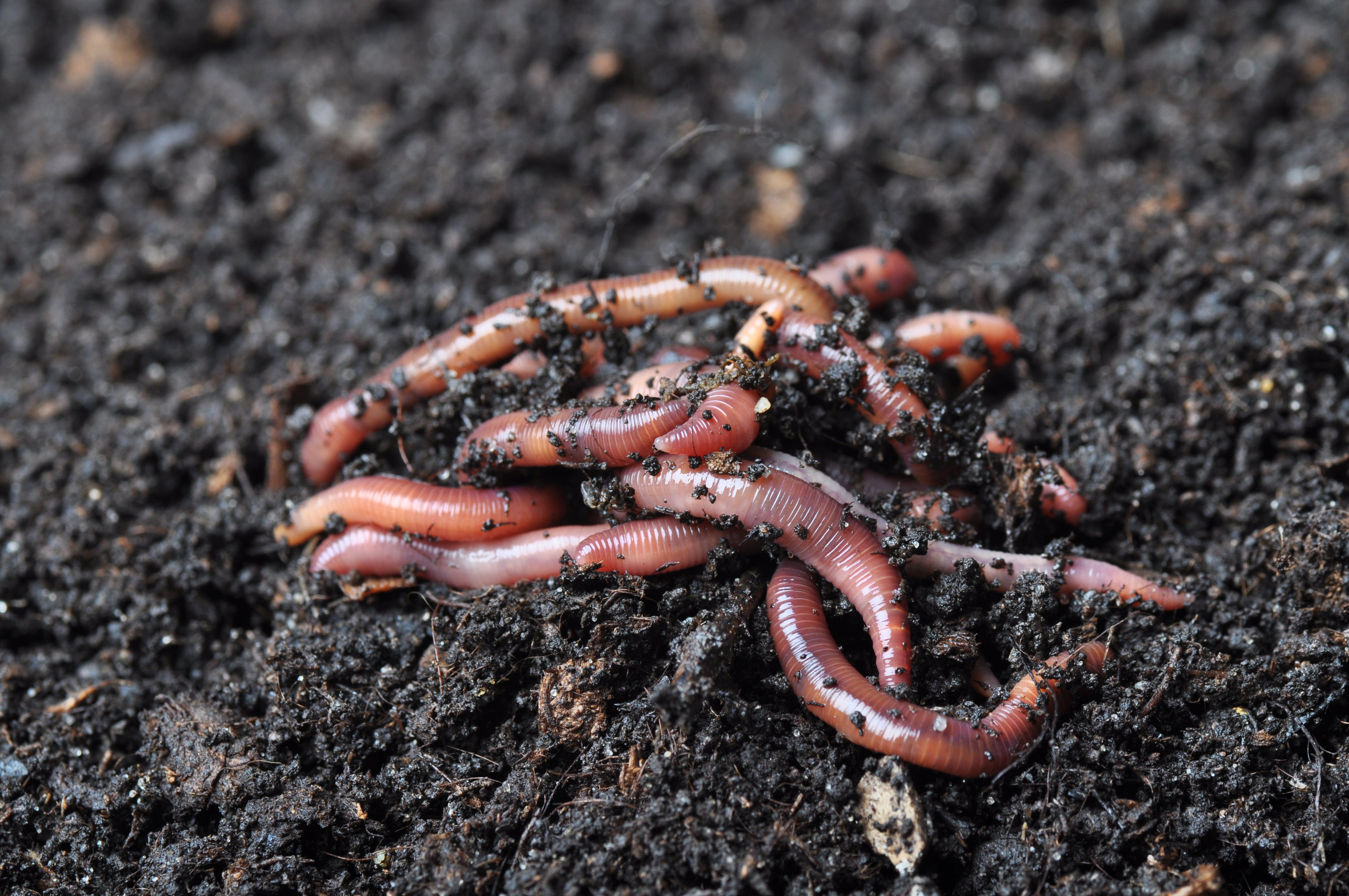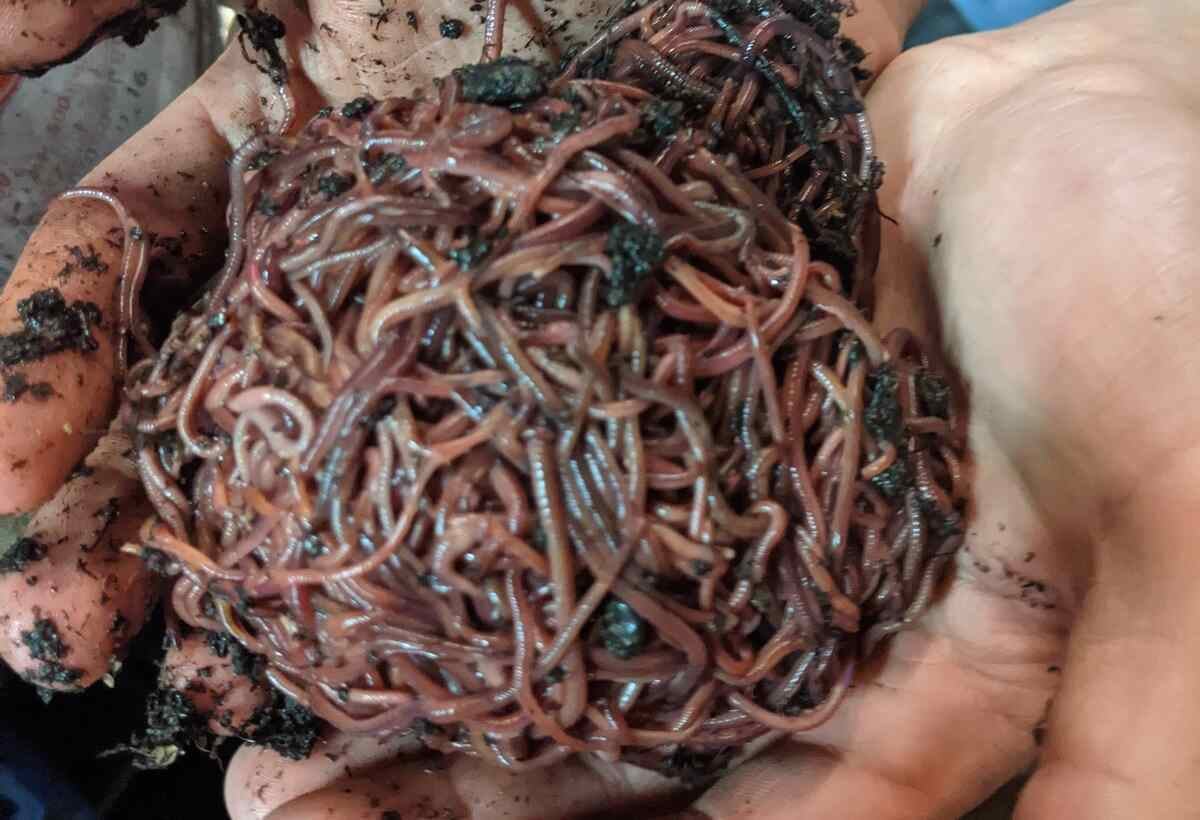Premium Top Quality Red Wiggler Worms - Enhance Your Yard's Fertility
Premium Top Quality Red Wiggler Worms - Enhance Your Yard's Fertility
Blog Article
Red Wiggler Worms Demystified: Unlocking the Tricks of Vermiculture for Greener Living and Nutrient-Rich Dirt
In the realm of sustainable methods for enriching soil top quality and advertising eco-conscious living, red wiggler worms play an essential yet typically ignored function. These humble animals possess the exceptional capability to transform organic waste into nutrient-rich spreadings that work as a powerful natural fertilizer. By diving right into the globe of vermiculture, one can reveal a wide variety of advantages that expand far beyond standard composting approaches. Recognizing the intricacies of caring for these worms, enhancing their setting, and utilizing their spreadings can bring about a greener way of living and much healthier dirt for plants to grow.
The Function of Red Wiggler Worms
Red Wiggler worms play a crucial function in composting systems by effectively damaging down raw material into nutrient-rich castings. These ravenous eaters consume a variety of natural materials, such as cooking area scraps, lawn waste, and paper products. As they feed, the worms' gastrointestinal procedures break down the organic matter into a penalty, dark, and nutrient-dense product called worm castings or vermicompost.
The spreadings produced by Red Wiggler worms are very advantageous for dirt wellness and plant growth. They are abundant in important nutrients like nitrogen, phosphorus, and potassium, which are crucial for sustaining healthy and balanced plant advancement. Furthermore, worm spreadings have beneficial germs and enzymes that aid improve dirt structure, increase water retention, and improve nutrient uptake by plants.
Benefits of Vermicomposting

Moreover, vermicompost, the nutrient-rich final product of vermicomposting, functions as an exceptional organic fertilizer and soil conditioner. It enhances dirt framework, enhances dirt oygenation, and boosts dirt dampness retention. These homes contribute to healthier plants with stronger origin systems and far better resistance to diseases and pests. Vermicompost additionally enriches the soil with vital nutrients like potassium, nitrogen, and phosphorus, promoting plant growth and general soil fertility.
Furthermore, vermicomposting assistances sustainable gardening techniques by offering a chemical-free and all-natural choice to artificial fertilizers. Red Wiggler Worms. This ecologically friendly strategy not only enhances the dirt however also helps in reducing reliance on hazardous chemicals, advertising a greener and extra sustainable means of gardening
Establishing Up a Worm Container
When establishing a worm container for vermicomposting, proper arrangement is critical to ensure the success of the composting process. The initial action in establishing up a worm bin is selecting an appropriate container.
After adding the bedding, present the red wiggler worms to the container. It is advised to begin with a small number of worms and gradually boost as they multiply. The worms must after that be given with food scraps such as vegetables and fruit peels, coffee premises, and eggshells. It is crucial to stay clear of adding meat, dairy products, oily, or salted foods to avoid drawing in insects and developing undesirable smells.
Routinely keep track of the wetness degrees and temperature in the worm bin to guarantee ideal conditions for the worms. With appropriate arrangement and upkeep, the worm container will effectively transform natural waste right into nutrient-rich compost for your plants and yard.
Harvesting Worm Castings
To effectively collect nutrient-rich worm spreadings from your vermicomposting system, a methodical harvesting method is essential. When it comes time to collect the worm castings, there are a couple of key steps to comply with to guarantee an effective process. To start with, quit adding fresh food scraps to one side of the worm container for a number of weeks before harvesting. This motivates the worms to migrate sideways with fresh bedding and food, making it easier to dig the spreadings from the opposite side.

Troubleshooting Common Issues
Recognizing and dealing with typical obstacles that may emerge throughout the vermicomposting procedure is important for maintaining a productive and healthy and balanced worm container. One usual concern that vermicomposters experience is overfeeding. Including excess food scraps can lead to an accumulation of dampness and acidity in see this the worm bin, potentially harming the worms. To prevent this, feed the worms in moderation, guaranteeing that the food scraps are properly broken down before including more. An additional problem is undesirable smells originating from the worm container. Foul scents indicate anaerobic conditions, normally brought on by overwatering or insufficient air flow. To fix this, adjust the moisture degrees by including completely dry bed linen products like shredded paper or cardboard and increase oygenation by turning the bed linens on a regular basis.
Furthermore, if the worm populace is declining or the worms show up undesirable, it might be as a result of environmental stress factors such as extreme temperatures or pH degrees. Keeping an eye on these aspects and making needed modifications is necessary for the health of the worms. By repairing these typical problems quickly, vermicomposters can make sure a successful and smooth vermicomposting process while maintaining a thriving worm populace.

Final Thought
In verdict, red wiggler worms play a vital role in vermiculture by damaging down organic issue right into nutrient-rich dirt. The benefits of vermiculture consist of greener living and boosted dirt high quality. Establishing a worm container is important for effective vermiculture, and gathering worm castings provides valuable garden compost for horticulture. By recognizing and repairing common concerns, people can open the tricks of vermiculture for sustainable living and healthier dirt.
As they feed, the worms' digestive processes break down the organic issue right into a fine, dark, and nutrient-dense product known as worm castings or vermicompost.
The castings created by Red like it Wiggler worms are very valuable for soil wellness and plant development. Including excess food scraps can lead to a build-up of wetness and acidity in the worm bin, potentially harming the worms.Additionally, if the worm population is decreasing or the worms appear undesirable, it might more helpful hints be due to environmental stress factors such as severe temperature levels or pH degrees. Setting up a worm container is necessary for successful vermiculture, and gathering worm castings gives useful garden compost for horticulture.
Report this page